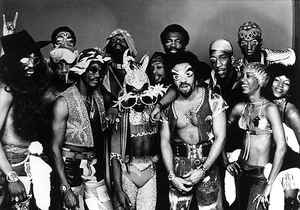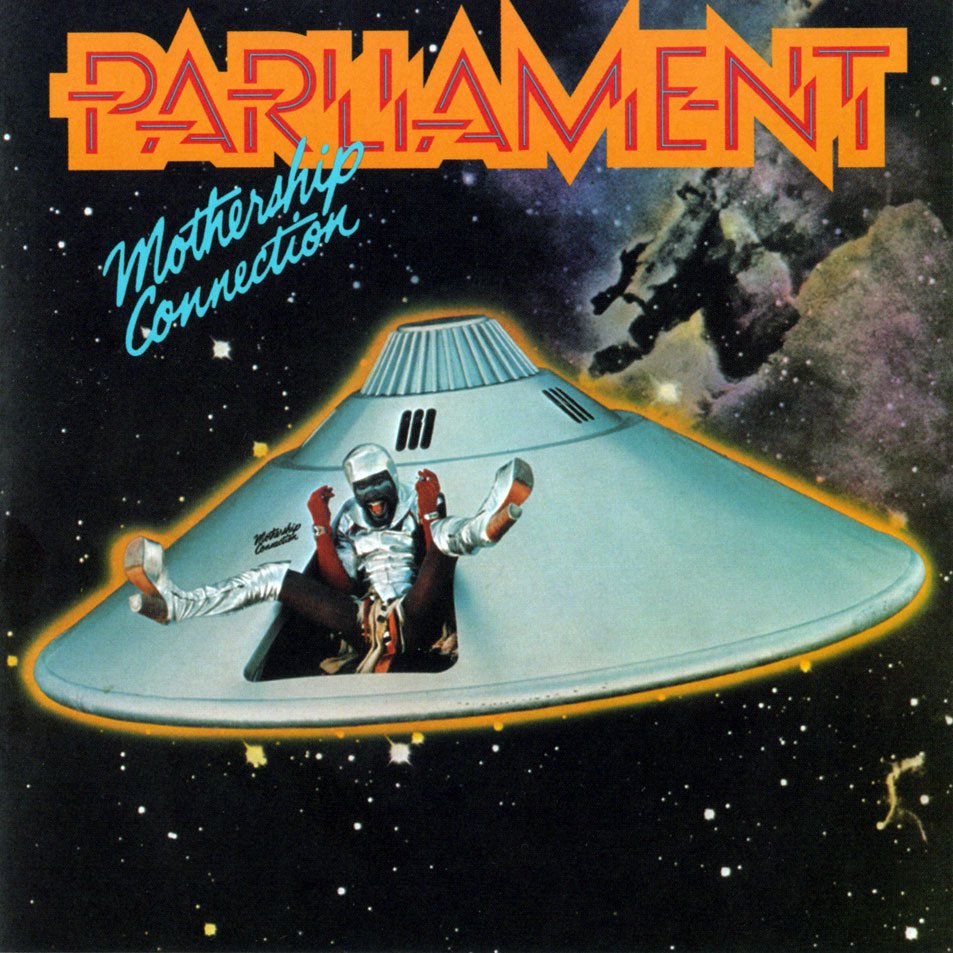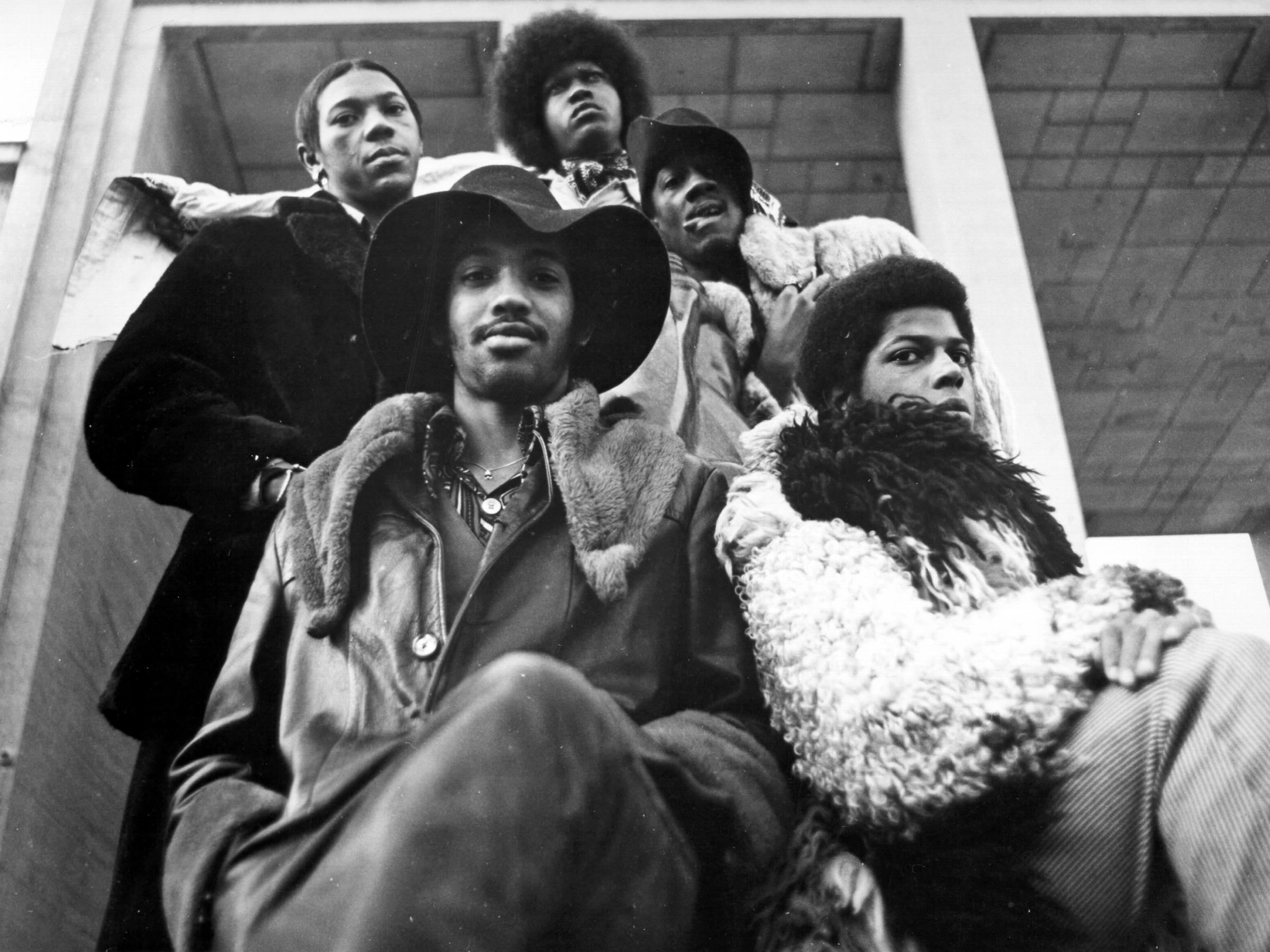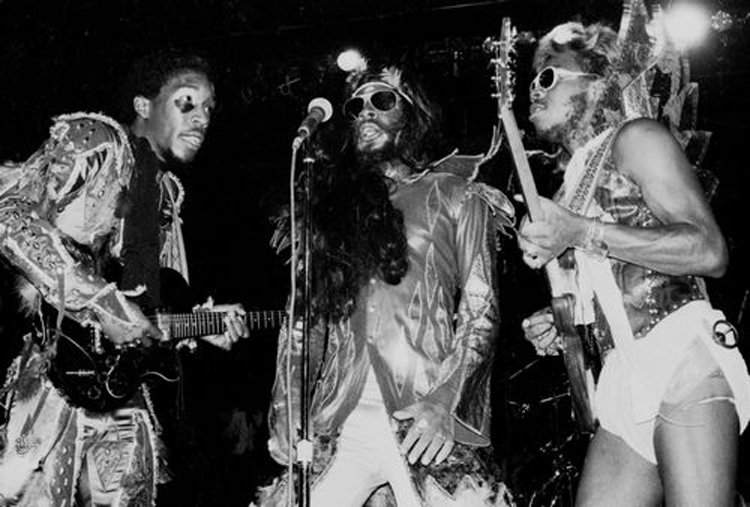Who Was Glen Goins? [S01E05]
Today we're talking about 70s Funk legend Glen Goins, funkadelic sound, and independence.
An insanely talented self-taught musician, lead guitarist and vocalist in the iconic and highly influential band in the mid 70s Parliament-Funkadelic, who passed away from Hodgkin’s Lymphoma just 10 days before the release of his new band Quazar’s first album.
BACKGROUND.
Glen Lamont Goins was born on January 2, 1954 in Plainfield, New Jersey. You could say he was destined to make music as he was surrounded by a family of talented gospel musicians that cultivated his strong voice from a tender age. Inspired by Jimi Hendrix and Johnny “Guitar” Watson, Glen learned to play guitar by ear.
MID 1960S
In the mid 1960s, he stepped on the stage for the first time, performing all over NJ, NY, PA and MD with his siblings in a youth gospel group. It was during this time he developed his unique “Churchified Tenor” style. He had an angelic voice that could stretch over 3 octaves, paired with his fiery screams that sounded like Al Green and Sly Stone on acid.
TEENAGE YEARS
In his teenage years, he sang with many different Soul and Rock bands until he found his clique. In his late teens to early 20s, Goins came onto the Funk scene as a member of The Bags, recording singles like “It’s Heavy” and “Don’t Mess With My Baby.”
With a few fan-favourite recording singles under his belt, at this point, all Glen needed was one lucky chance encounter.
THE MOMENT THAT CHANGED HIS LIFE
By the early 70s, the band had done pretty well for themselves attracting attention and growing buzz among the Funk community. But it wasn’t until he met the mastermind of one of the most popular Funk bands around in 1974 that his Funkadelic reign truly begun.
When Goins struck a chord on his guitar, he truly struck gold. Gold that could captivate any listener, and so it did. His musical talent captured the attention of Parliament-Funkadelic guitarist Garry Shider who introduced him to the leader of the PFunk group, George Clinton. Clinton was awestruck by the raw and effortless talent young Goins possessed and just had to had Glenn in the PFunk band. In late 1974, he was officially inducted into the Parliament posse and appeared on their next album Chocolate City in 1975.
And on their 1976 albums Tales of Kidd Funkadelic and Hardcore Jollies on popular records “Smokey,” “You scared the loving outta me,” and “take your dead ass home,”
Goins voice was truly heard in all its glory on the bands landmark albums Mothership Connection, The Clones of Dr. Funkenstein, and Parliament live.
In their live performances, the crowd went wild when Goins voice summoned their trademark “Mothership”; the 40ft silver prop spaceship that landed on stage.
Glenn had a powerful voice that turned a raunchy funk–rock concert into an outright religious experience. But all glamourous things do come to an end.
AT A CROSS ROADS
For several years, Glenn traveled all over abroad on what seemed like the George Clinton SSR and grew restless as George’s sidekick. Goins sat by watching other members leave the band, create their own successful bands and decided he wanted to do the same. In 1977, after just 3 years of being a member of one of the most influential Funk bands in the country; leader George Clinton’s alleged bad management problems drove a wedge between band members, and steam boated Glenn’s departure from the group. Glenn recorded “Funkentelechy” and “One Nation under a Groove” with the Parliament clique, which would become his last recordings with the PFunk clique.
TURNING A NEW LEAF
Glenn and a few of his former bandmates were tired of being underpaid for going above and beyond the call of Funk in a mismanaged band. Wanting to take full control of his music career, he decided to make his own band Quazarr in 1978 with good friend and former PFunk bandmate Jerome “Bigfoot” Brailey on the drums, lead by his younger brother Kevin Goins; the quirky younger singer-guitarist with a unique harmonic glitch that paired perfectly with the Funkadelic sound. He also became a part of the Mutiny project, another band developed by him and his ex-PFunk clan members. Glenn Goins had finally found his musical home, surrounded by musical geniuses and well, a well-managed band, everything was right in the world.
With 9 golden songs written on Quazzar, the group traveled to Detroit, destination: Pac 3 Studios, where Glenn arranged and produced their album. With the album all but ready, the group was ready to set sail to NY, this time on the Quazarr SSR, when things got complicated.
Prior to landing in Detroit, two labels expressed interest in signing the band: Arista Records and Westbound. Now in Detroit, Glenn went to pick up the master-tapes for the new LP. When he arrived at the airport with his fresh tapes, he was stopped by the police. A major problem arose. Both labels though that they had signed Quazarr giving them the rights to the album, the tapes were sized and a two-month bitter court battle began. Unbeknownst to Glenn, those two months turned out to be precious time the artist simply could not afford to waste.
Glenn decided to abandon the master-tapes altogether and re-record the album under a different band name, signed to Arista Records. All the while, Glenn was working on a solo album with Bobby Womack. Perhaps the stress of the ensued court battle, re-recording and two albums on a tight deadline was too much for the artist to handle. And the stress accrued finally started to take a toll.
As with all insanely talented musicians just beginning to plant their artistic feet firmly on the ground, this new turn of the leaf would be short lived.
DEATH
In late 1977, Glenn started to feel ill discovering he had developed cancerous nodes that would eventually claim the young man’s life.
On July 29, 1978, 24-year-old Glenn Goins passed away from Hodgkin’s Lymphoma just 10 days before the release of his new bands first record.
His band mates were at a concert in Phili at the time when they heard the news, and soon found themselves heading back for their best mate’s funeral. Even more depressing, the remaining bandmates still owed Arista Records an album, and had to put their grief on hold to finish their debut album scheduled to be released in August of the same year giving them just 10 days to complete it. But something good had to come from all this grief. The album’s single rose to number 11 on the US R&B charts, the album hitting number 121 on the US Billboard 200 and toping at 21 on the US R&B Charts.
Although he never did get to see his Quazarr and Mutiny projects in all their glory and has been all but forgotten by the 21st century music world, the spirit of the funk legend Glenn Goins lives on in the voices of Cee-Lo Green, Outkast and NERD. His voice and music has also been sampled by artists like Dr. Dre, Snoop Lion and Ice Cube.
If it wasn’t for the 2-month album custody battle resulting in Glenn having to re-record the self-entitled album Quazar, the only album released by the band, Goins would have lived to at least see the fruits of his labor. All he wanted to do was release his own music, on his own terms. Sadly, greed, avarice and malice prevented him from doing just that. The re-recorded album is a compelling mix of P-Funk, soul, jazz and funk. It is pure gold, which leaves me wondering what the original album sounded like. But I suppose we’ll just never know.
The story of Quazar’s only album Quazar is the tale of some insanely talented musicians who just wanted to release their own music.










